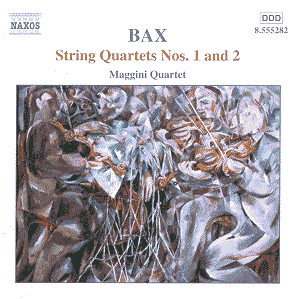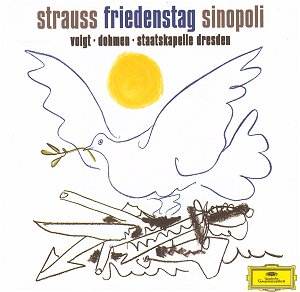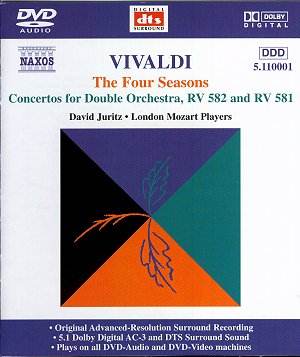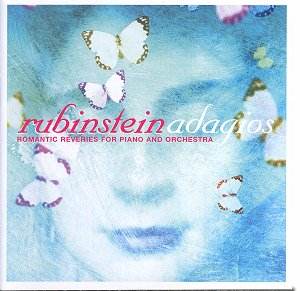 Composer: Arnold BAX (1883-1953)
Composer: Arnold BAX (1883-1953)
Works: String Quartet No. 1 (1918), String Quartet No. 2 (1925)
Performers: Maggini Quartet
Recording: Recorded 19-21 Dec 1999, Potton Hall, Suffolk
Label: NAXOS 8.555282
Arnold Bax, a prominent figure in the British music scene during the early 20th century, crafted a rich and varied body of work that often reflects his deep engagement with the natural world and the emotional landscapes of the human experience. The two string quartets presented here encapsulate the dual nature of his compositional voice. The First Quartet, composed in 1918 during the tumultuous final year of World War I, radiates a buoyant vitality, while the Second Quartet, written in 1925, delves into more complex and darker territories, encapsulating the evolution of Bax’s style in a post-war context.
The Maggini Quartet’s interpretation of the First Quartet is nothing short of exhilarating. They capture the work’s effervescent quality with an infectious exuberance, deftly navigating its three movements. The outer movements, particularly the Rondo, thrive on a sense of Wienerisch charm, a nod to the influences of Dvořák and the late-Romantic idiom. The performance is marked by a lightness of touch; the ensemble’s phrasing is both articulate and fluid, allowing the melodic lines to unfurl with a natural ease. One particular moment that stands out occurs at 3:10 in the Rondo, where a theme emerges that is so irresistibly lyrical it invites spontaneous whistling—a testament to Bax’s gift for melody. The Maggini Quartet’s ability to articulate these themes with clarity while maintaining a playful spirit is commendable, and the recording quality enhances this lively exchange, presenting a sound that is both warm and resonant.
In contrast, the Second Quartet presents a more formidable challenge, both to the performers and the listener. The Maggini Quartet approaches this work with a reverence that acknowledges its complexities. Unlike the First Quartet’s immediate appeal, the Second demands a more nuanced understanding. The dissonant harmonies and intricate counterpoint create a tapestry that is richly textured but can initially feel forbidding. This performance reveals the work’s underlying beauty as the Quartet navigates its vertical complexities, drawing parallels to the music of Eugene Goossens. The interplay between the instruments is meticulously crafted, exemplifying the technical prowess of the Maggini players. However, the recording lacks the immediacy that one might hope for, making it a more challenging listen compared to the buoyant First Quartet.
Sound quality is a consistent strength across this Naxos release. Potton Hall’s acoustics favor the strings, allowing their warmth and detail to project beautifully. The recording captures the nuances of the performers’ dynamics, from the delicate whisper of a cello line to the vibrant dialogue among the first and second violins. This clarity serves both works well, although the First Quartet benefits more from the recording’s lively ambiance.
Comparatively, this recording stands alongside earlier interpretations, notably those from Chandos, which couple the First Quartet with other chamber works. While the Chandos releases are well-respected, the Maggini Quartet brings a fresh perspective that revitalizes the First Quartet and presents the Second with a depth that merits attention, albeit for a different audience.
The juxtaposition of Bax’s two quartets within this recording encapsulates a significant aspect of his oeuvre: the duality of exuberance and introspection. The Maggini Quartet’s performances illuminate these contrasting facets with skill and sensitivity, making this disc a valuable addition to the discography of Bax’s chamber music. The recording not only showcases the Quartet’s exceptional capabilities but also invites listeners on a compelling journey through Bax’s evolving musical landscape, affirming the enduring relevance of his work in today’s classical repertoire.



